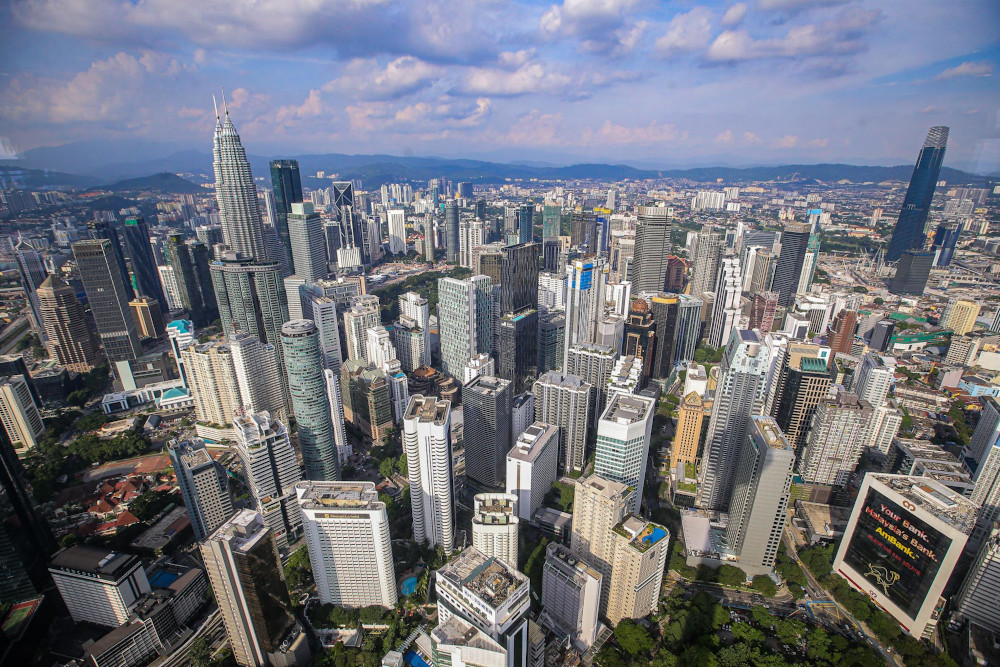KUALA LUMPUR, April 28 ― The Asian Development Bank (ADB) projects Malaysia’s gross domestic product (GDP) to rebound to 6.0 per cent in 2021 and stabilise at about 5.7 per cent in 2022, supported by the rollout of Covid-19 vaccines.
The economic expansion will be also aided by continued accommodative fiscal and monetary policies, ADB said in its flagship economic publication, the Asian Development Outlook (ADO) 2021.
It said recovering consumer and capital spending are set to revive domestic activity, while a pickup in global demand should boost exports and foreign investment.
Meanwhile, growth in private consumption will be underpinned by government stimulus packages and further supported by an effective vaccination programme.
Malaysia's vaccination programme began in February, with the government planning to vaccinate at least 80 per cent of the country’s 32 million population in 12 months. As at mid-March, two million doses had been administered.
“Although the vaccine rollout should help improve consumer confidence, spending will likely remain muted until labour market conditions show sustained improvement,” ADB said.
As for investment, recovery is likely to be modest as the resumption in construction activity will face near-term setbacks with the reintroduction of some pandemic-related restrictions.
“Vaccine availability and firming foreign demand will boost business sentiment and, in turn, support the recovery in private investment.
“The resumption of construction on the East Coast Rail Link, Mass Rapid Transit (MRT) Line 2, and the Pan Borneo Highway is also expected to lift public investment in 2021,” ADB noted.
ADB also believes the government’s Budget 2021 is expansionary, along with fiscal stimulus measures totaling RM322.5 billion or about 20.6 per cent of GDP.
“Monetary policy conditions are expected to remain accommodative to support a recovery in domestic demand,” it said, adding that inflation is expected to return over 2021 and 2022, and remain closely linked to commodity and oil price fluctuations and domestic price control measures.
Overall, inflation is forecast to edge up to 1.8 per cent in 2021.
“A mild recovery in global energy and commodity prices, combined with the normalisation of economic activity, are expected to raise consumer prices by 2.0 per cent in 2022,” ADB added.
As for the current account balance, it is expected to remain in surplus in the near term, with the surplus equal to about 4.4 per cent of GDP in 2021 and 2022.
ADB said merchandise trade balance should remain positive, buoyed by rising crude and palm oil prices, sustained demand for electrical, electronics, and medical products as well as an improving outlook for the global economy.
“Malaysia’s exports to the US should benefit from the U$1.9 trillion (RM7.8 trillion) US stimulus package.
“The services account will remain in deficit, however, as international transport and insurance costs continue to form a large part of the services bill.
“The primary and secondary income accounts will also remain in deficit, reflecting the continued repatriation of profits by foreign firms with local operations and outward remittances by foreign workers,” said ADB.
However, it said the major risks to the outlook are renewed outbreaks of Covid-19, unexpected delays in vaccine rollouts, and a lower-than-expected recovery in major advanced economies.
“While the positive news on vaccines are grounds for optimism, uncertainties remain over their distribution, both globally and domestically.
“A further concern is the likely impact of renewed restrictions on supply chains as this could further delay the rebound in manufacturing activity,” ADB said. ― Bernama






















